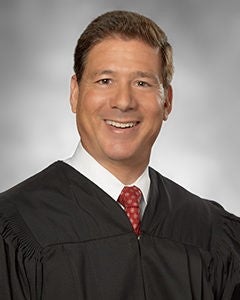Ethics Committee Seeks Public Comment: When Can Judges Advise Family Members On Law-Related Matters?
The California Supreme Court Committee on Judicial Ethics Opinions (CJEO) invites public comment on a draft formal opinion outlining how judges may advise family members on matters that implicate legal issues.
CJEO Draft Formal Opinion 2020-017 recognizes judges may not practice law under both the constitution and the Code of Judicial Ethics and offers guidance about what advice judges may give family members. The draft opinion discusses case law that defines certain activities as constituting the practice of law, but where there is no clear precedent, CJEO concludes judges should not advise their family members if doing so would undermine the dual purposes underlying the prohibition on judicial practice of law, to: (1) ensure the performance of official judicial duties; and (2) maintain the integrity of the judiciary.
Specifically, CJEO advises that judges are not permitted to:
- accept compensation for help with legal matters;
- provide advice that could lead to the judge’s disqualification;
- neglect official duties in favor of a matter involving a family member;
- provide advice that would cause a reasonable person to question the judge’s independence or integrity; or
- act, or appear to act, as an advocate.
CJEO concludes judges may provide family members with information they could provide a self-represented party appearing before them. Judges may also provide advice relating to a matter in which they are personally involved and acting in their own interest.

The draft formal opinion and invitation to comment are posted on CJEO’s website. “The posting of this draft opinion for comment offers the bench and public an opportunity to provide input on an issue that has attracted significant commentary in the past, about what does and does not constitute the practice of law,” said committee member Judge Robert J. Trentacosta of the San Diego County Superior Court. The deadline for comment is March 22, 2021.
All comments submitted to CJEO are deemed not to be confidential communications and may be posted on CJEO’s website for public review at CJEO’s discretion (Cal. Rules of Court, rule 9.80(h)(1) & (4).) All comments CJEO receives will be carefully considered by the members of CJEO when considering whether to publish the opinion in its original form, or to modify or withdraw the opinion.
After considering the public’s comments on the draft opinion, CJEO will decide whether to publish an opinion in final form. Comments are due by March 22, 2021 and may be submitted:
- Online using this Comment Form; or
- By email to Judicial.Ethics@jud.ca.gov.
About the Committee on Judicial Ethics Opinions (CJEO)
The Committee on Judicial Ethics Opinions is a 12-member advisory committee that includes appellate justices, trial court judges and commissioners. The committee is appointed and authorized by the California Supreme Court, but its work is independent of the court, the Judicial Council, and all other entities. Its opinions are advisory and do not necessarily reflect the views of the California Supreme Court or any other entity.
The committee issues formal, informal, and expedited advisory opinions on proper judicial conduct pursuant to the California Code of Judicial Ethics and other authorities. CJEO its opinions on the CJEO website for the benefit of the bench and the public


